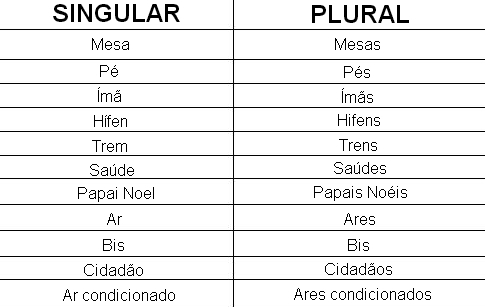A phrase is each of the parts that, together, form a sentence.
For example, sentences have a subject and predicate. The subject is a phrase and the predicate is another phrase.
There are five types of phrases, but the main ones are the noun phrase and the verbal phrase.
At the NOUN PHRASES, the core - its most important part - is a name, which is usually a noun. In a sentence, the subject is a noun phrase.
At the VERB SYNTAGM, the nucleus - its most important part - is a verb. In a sentence, the predicate is a verb phrase.
Examples of noun and verbal phrases:
1) The students have now arrived.
NOUN SYNTAGM: “the students”, the subject, which has the noun “students” as its nucleus.
VERBAL SYNTAGM: “they arrived now”, the predicate, which has as its nucleus the verb “they arrived”.
2) They will understand everything.
NOUN PHRASES: “they”, the subject, which is a noun pronoun.
VERB SYNTAGM: “they will understand everything”, the predicate, which has as its nucleus the verb “they will understand”.
3) These students will get an A!
NOUN SYNTAGM: “these students”, the subject, which has the noun “students” as its nucleus.
VERBAL SYNTAGM: “they will get a ten”, the predicate, which has as its nucleus the verb “they will get”.
In addition to nominal and verbal phrases, there are also the following types of phrases, which are classified according to their nucleus: adjectival phrase, prepositional phrase and adverbial phrase.
Noun phrase: what it is and examples
Noun phrase is each part of the sentence that has a noun as its nucleus, which is usually a noun.
This is the case, for example, of the subject, the verbal complement (direct and indirect objects), the nominal complement and the appositive. Thus, in the same sentence there can be more than one noun phrase.
Let's see:
1) Everyone read the suggested book.
NOUN PHRASES:
“all”, the subject, which is a noun pronoun
“the suggested book”, the verbal complement, which has the noun “book” as its nucleus.
2) My friends, Davi and Miguel, live close to the school.
NOUN PHRASES:
“my friends”, the subject, which has the noun “friends” as its nucleus
“David and Miguel”, the appositive, which has as its nucleus the nouns “Davi” and “Miguel”
“from the school”, the nominal complement, which has the noun “school” as its nucleus.
Verb phrase: what it is and examples
Verb phrase is the part of the sentence that has a verb as its nucleus. This part of the sentence is the predicate.
Thus, when we have periods formed by two or more clauses, we will also have two or more verb phrases.
Let's see:
1) I understood the whole thing.
VERB SYNTAGM:
“I understood the whole matter”, which has as its nucleus the verb “I understood”. As it is made up of just one clause (it has just one verb), the period is simple.
2) I understood the whole thing and passed the year.
VERB SYNTAGM:
“I understood all the material and I passed the year”, which has two nuclei: the verb “I understood” and the verb “I passed”. As it is formed by two clauses (it has two verbs), the period is compound.
The verbal phrase can be composed of noun phrases that complement it, such as direct and indirect objects:
3) I lent the book to the teacher.
VERB SYNTAGM:
“I lent the book to the teacher”, which has as its nucleus the verb “I lent”. As the verb borrow does not have a complete meaning, it needs complements, which are noun phrases.
NOUN PHRASES:
“the book”, the direct object (without preposition), which has the noun “book” as its nucleus
“to the teacher”, the indirect object (with preposition), which has the noun “teacher” as its nucleus.
Adjectival, adverbial and prepositional phrases
In addition to nominal and verbal phrases, there are also adjectival, adverbial and prepositional phrases.
In the adjectival phrase, the nucleus - its most important part - is an adjective. In the adverbial phrase, the nucleus is an adverb. And finally, in the prepositional phrase, the clause part is structured by a preposition.
Example:
Interested students carefully read the explanation about phrases.
- Noun phrase: students.
- Verb phrase: carefully read the explanation about phrases.
- Adjectival phrase: interested
- Adverbial phrase: attentively.
- Noun phrase: the explanation.
- Prepositional phrase: about phrases.
Read too:
Syntactic function
Types of phrase
FERNANDES, Márcia. Noun and verbal phrases explained with examples.All Matter, [n.d.]. Available in: https://www.todamateria.com.br/sintagma-nominal-e-verbal/. Access at:
See too
- Types of phrase
- Subject and predicate exercises
- Syntactic function: what it is (with examples and exercises)
- Exercises on phrase, clause and period
- Exercises on subject types with feedback
- Exercises on verbs for 6th grade (with answer sheet)
- Predicate: verbal, nominal and verb-nominal
- Nominal Complement

